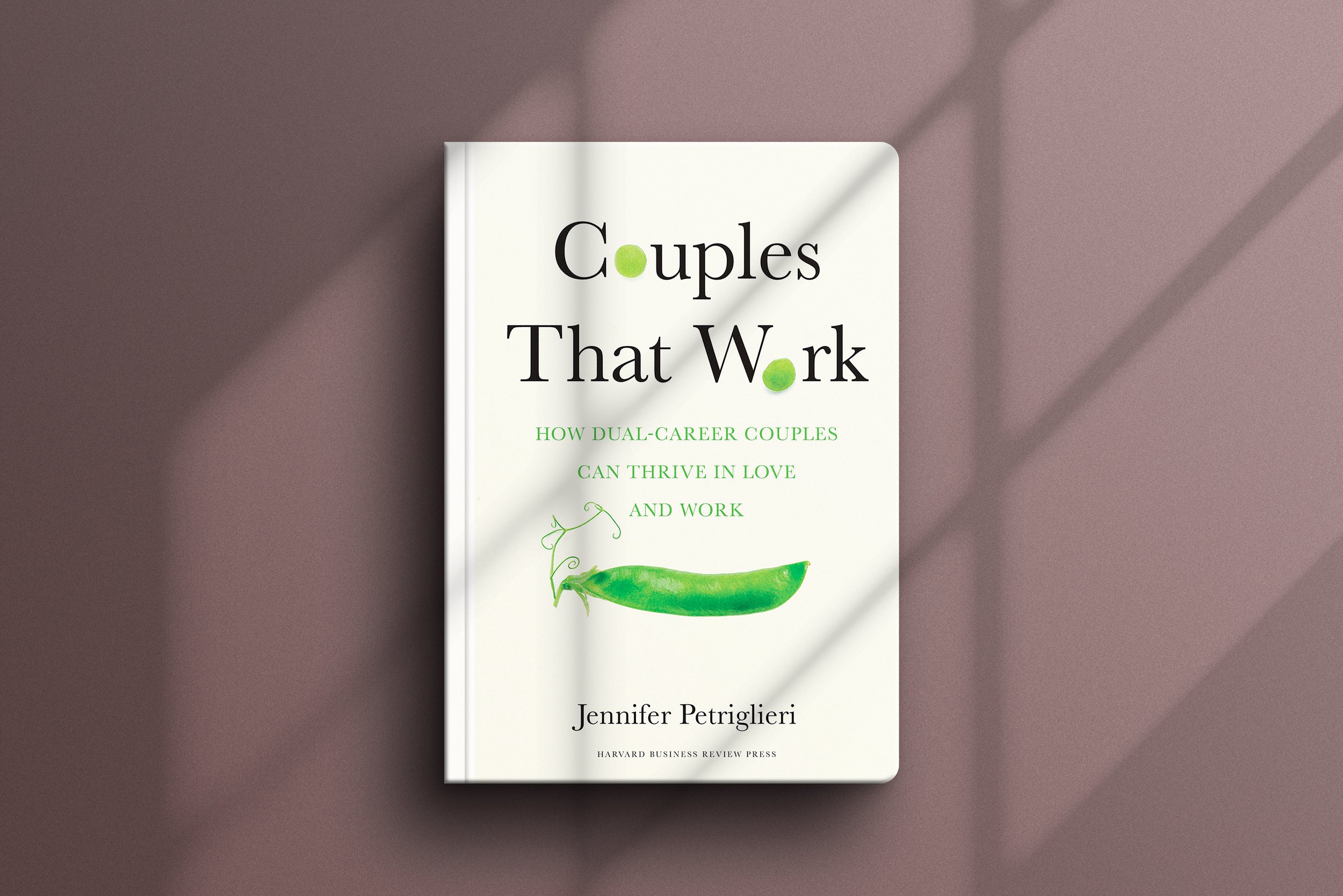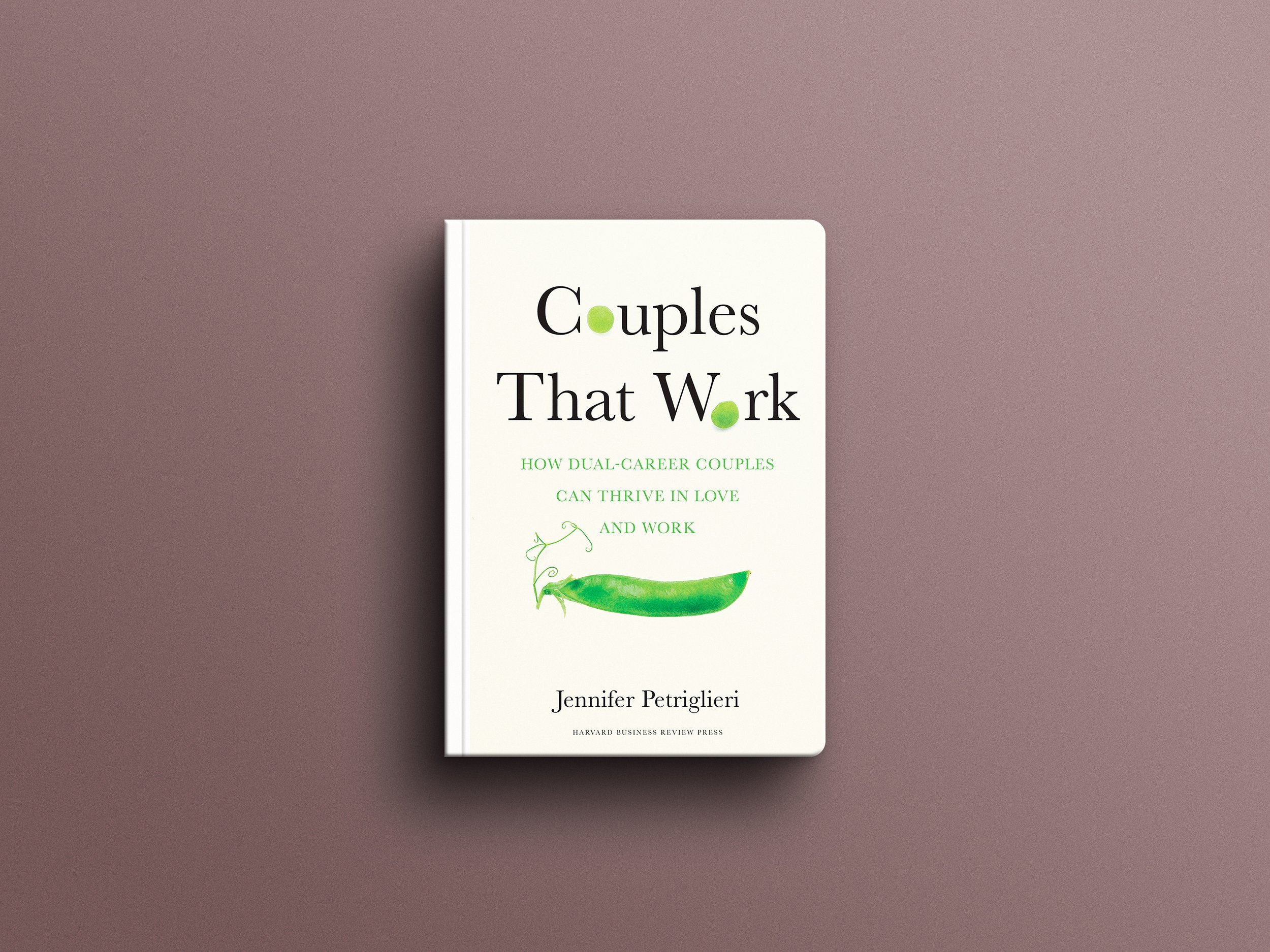How working couples succeed together


Jennifer Petriglieri, author and an Associate Professor of Organizational Behavior at INSEAD business school, discusses some of the key questions that dual-career couples need to address if they want to create the conditions for lasting relationships in which intrinsic motivational needs are met on both sides.

An Associate Professor of Organizational Behavior at INSEAD business school in Fontainebleau, France, Jennifer Petriglieri spent years researching the lives of dual-career couples, interviewing hundreds of them to identify typical patterns and traps to avoid. She then shared her findings in the book Couples That Work: How Dual-Career Couples Can Thrive in Love and Work.
Here, Petriglieri boils down some of the key questions that dual-career couples need to address if they want to create the conditions for lasting relationships in which intrinsic motivational needs are met on both sides.
(Interview edited for brevity and clarity.)
If I had to summarize your book, Couples That Work, in two words, I think it’s about ‘being intentional’?
Absolutely. Yes. Which is not the same as planning everything, right? But certainly being intentional about choices.
What you describe really well in the book is how often we fall into patterns—say, one primary career / one primary caregiver. And we don’t necessarily realize we’re doing it, or we’re doing it for the wrong reasons. How can couples connect to their intrinsic motivation when they are two separate people who want different things in their careers?
The really important thing is to get out of the thinking of what we want, and into the thinking of: What sort of person do I want to be? And what sort of couple do we want to be? And what sort of kids do we want to raise? And what kind of community might support that? What is a good life for us? Is it a life in the city? Or is it a life in the suburbs? Or is it a life in the country? Is it a life super connected to our extended family? Or is it a little bit more of a nuclear family life? Is it a life where we’re very embedded in our community? And I think when we start answering these questions, a lot of the questions around the things slot into place.
So you’re saying it’s about identity rather than about action?
It’s really about thinking about the big picture, which is identity. Now, sometimes people can think, Oh, how do I go about that? It seems really big. I always think of a five-year time horizon. Five years is enough time that, realistically, you could make a significant transition, but it’s not so far that you can’t project yourself into the future. If I project myself five years forward, what is going to make for a good life for me or for us? And from there we can then build up into the decisions themselves.

You write in the book: “Without forethought, identity implications only become apparent a few years after you have made your choices. Many people I interviewed for this book described waking up one morning with a sudden realization that they were living a life that they had never anticipated, and had become a person that they didn’t want to be, that their decisions had made them instead of them making decisions.” Is this something fairly universal? I think most of us imagine others are really driven, and they have a clear plan.
I think there’s a mistake to equate it with how planful we are in life. Because the question is, whose plan is it? And very often, it’s not ours. Let’s take the classic kind of late 20-year-olds who seem very driven and know what they want. You wind back to, Where did you get these ideas from? Well, when I was graduating, the trendy thing was to go into tech, so I went into tech. And my parents got married [in their] late 20s, so I’m definitely getting married [in my] late 20s. So they look very planful, very directional, but it’s not their direction. I don’t think having a plan saves you. I think it’s about, Are you the author of your plan? Regardless of how tight that plan is, or how kind of loose and free it is, is it your plan? Or is it someone else’s plan?
You mention in the book that dual-career couples can excel at making color-coded calendars and sorting out the logistics, but don’t necessarily think about the balance of power and control within the couple, which is where resentment can build up.
There’s this lovely notion of a 50/50 partnership, which, of course, is an ideal—but it’s never a reality. Because there are always times when one of you just has to step up for whatever reason—the other person has a big pinch, something’s happening with their family… When I think of fairness, I think: do we both have the same share of voice? Do I have the power to say: This is what I need, this is what I want? And I know I’m not always going to get it. But at least I’m going to feel that you’re respecting that and we are trying to work in that direction.
I always say, if you’re arguing about who’s buying the milk, it’s never about the milk. It’s never about the division of time. It’s about, Well hang on a minute, how come your time is more valued than my time? Or how come you get to choose?
You would assume that 50/50 couples are the happiest, right? What is the case is the couples who are the most content are couples who are very clear about the rules of the game, very clear about the division of labor, or whose career leads or follows right now—and that can change over time.
What’s your advice on how to have those conversations about joint life decisions?
I think it’s about a series of conversations as opposed to a conversation. And I think it’s the idea of weaving the idea of meaningful conversations into the fabric of your relationship. Part of it is demystifying this and making it less of a special thing. And more of just, this is one of the things we talk about, right? And I would also say if you’ve never had these conversations, it’s about starting small. We are simply building an understanding.
To read the full transcript of this interview, or listen to it in podcast form, please click here.